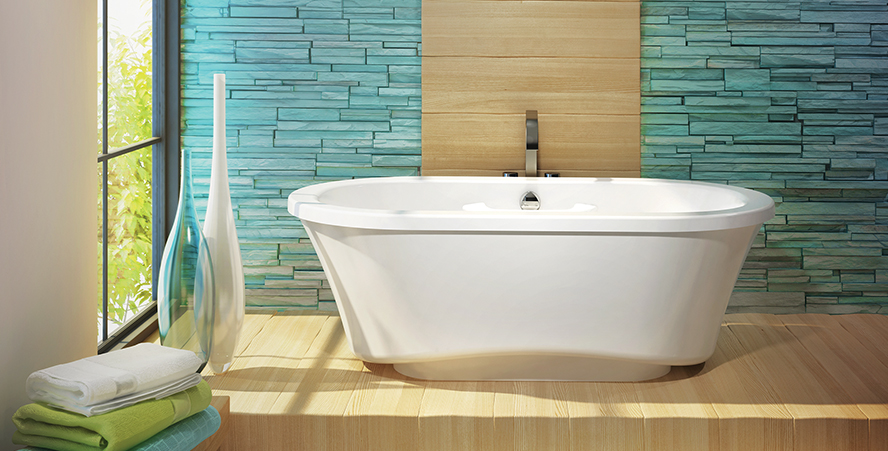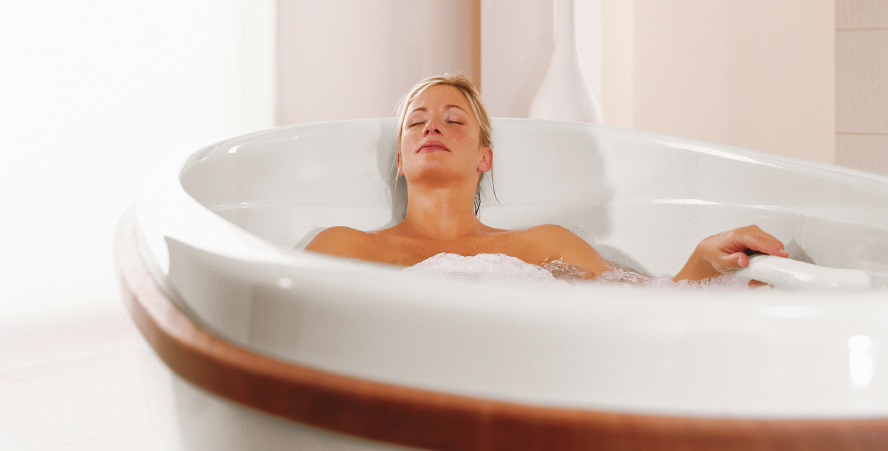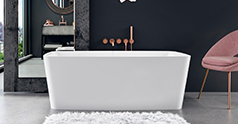Practical questions for evaluating the quality of a design
- When I look at this bathtub, what do I feel?
- When I get into the bathtub, sit down, and get out again, how do I feel?
- When I think about using the bathtub, what comes to mind? Do I think of the pleasurable aspects or the irritants?
Design characterizes the use, appreciation, and functions of a bathtub.
Use
What the object is used for. This is known as the object’s “universal function.”
Appreciation
The object’s appeal. This is the subjective relationship the buyer has with the object. It starts with the buyer’s sensory perception of the object—what the buyer sees and feels.
Utility
The value attributed to the object in relation to the buyer’s situation.

Why BainUltra® makes 100% acrylic bathtubs.
Use
It’s a highly resistant and hygienic material.
Appreciation
It’s a material with a glossy, brilliant finish that reflects light. It evokes cleanliness. It’s also very soft and smooth to the touch.
Utility
It is a material that conducts heat well. It is easy to clean and preserves its shine through time.
Bathtub ergonomics
The ergonomics of a bathtub are relative to the person using it, which is why BainUltra has a variety of ergonomic designs.
Use
Our basic bathtub is designed with certain functionalities in mind: arm rests, leg rests, grab bars, head rests, and elevated seats. These features can therefore add quality to the immersion experience of the bather. They can be added to better meet the specific needs of each client. So the shape of the bath changes depending on which functionalities are added.
Appreciation
With all the ergonomic possibilities, it’s up to the client to evaluate their needs. Each buyer needs to find the right balance between the use and the esthetics of the object. At the end of the day, the buyer should be able to say, “I like this bath because it makes me feel good and because it looks good.”

Utility
Ultimately, optimal ergonomics mean the bath is the best possible shape given the client’s physical and architectural constraints. Some functionalities or designs may seem desirable, but the true value of the object—the one that justifies the investment—is measured in part by the characteristics that make it useable.
Practical questions
- How durable and hygienic is the material used for the bath?
- How does this material speak to who I am? (clean, cold, soft, humble, ostentatious, etc.)
- What are the properties of the material and what do I need to do to care for it?
- Which functionalities meet my needs?
- Are my purchase criteria justifying the amount of money I want to invest predominantly esthetic or functional?
- What physical and architectural constraints are going to narrow down my choices?



